So You’re Considering Becoming a Para-professional? Here’s What You Need To Know
Are you thinking of beginning a new career as a para-professional? With so many available roles and responsibilities, making the right choice can be intimidating. But don't worry – we're here to provide you with all the information you need to make an informed decision. In this blog post, we'll explore the job requirements, career prospects, and other details that you should consider before making your move. So, if you're serious about becoming a para-professional, read on to learn more about the details of this dynamic and rewarding career!
What is a paraprofessional?
A paraprofessional is a professional who works in a supportive role to a professional in various fields. They are also known as paraprofessionals or para-pros. Learn more about the different types of paras.
There are many different paraprofessionals, but they all share one common goal: to help others.
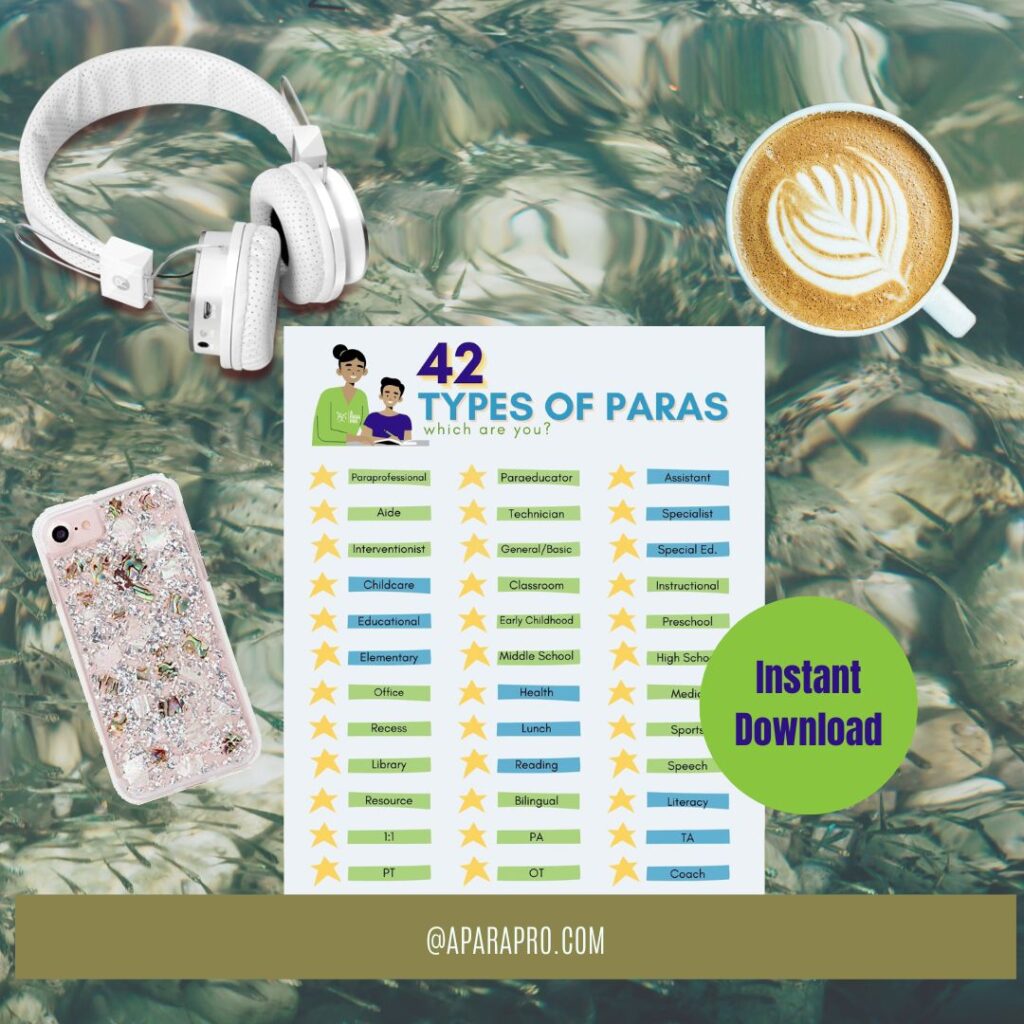
Becoming a paraprofessional is a great way to start a career in a specific field without committing to a four-year degree program. Paraprofessionals can work in a variety of settings, including schools, hospitals, clinics, law offices, and government agencies. Whether they work with children or adults, in schools or hospitals, paraprofessionals strive to improve the lives of those they work with.
What do paraprofessionals do?
Paraprofessionals are an essential part of the workforce in many industries, providing specialized skills and services to help professionals in their roles. They are often the unsung heroes of the professional world, but their contributions should not be overlooked. There are a variety of paraprofessionals, each playing their own unique role in the workplace. Some common examples of paraprofessionals include:
- Teacher's aides, for example, are paraprofessionals that work alongside teachers in a classroom setting. They provide extra support to students, helping them understand concepts and complete activities. They also assist teachers by monitoring student progress and providing additional resources.
- Nurse aides are another type of paraprofessional. They assist nurses with the daily tasks associated with patient care, such as changing bedding, taking vital signs, and taking medical histories. In addition, they may provide emotional support to patients and their families.
- Medical assistants are paraprofessionals that help with the day-to-day operations of a medical practice. They may perform administrative duties such as scheduling appointments and filing paperwork, as well as clinical duties such as taking vital signs and collecting lab samples. They are also responsible for educating patients about their diagnosis and treatment plan.
- Legal assistants are paraprofessionals that provide support to lawyers by helping to prepare legal documents, research cases, and attend court hearings. They also assist lawyers in gathering evidence and interviewing witnesses.
- Paralegals are paraprofessionals that provide legal support to lawyers. They are typically responsible for researching laws and regulations, drafting legal documents, and preparing for court proceedings.
- Psychiatric aides are paraprofessionals that provide support to psychiatrists and other mental health professionals. They are often responsible for providing emotional support to patients and helping to create an effective treatment plan.
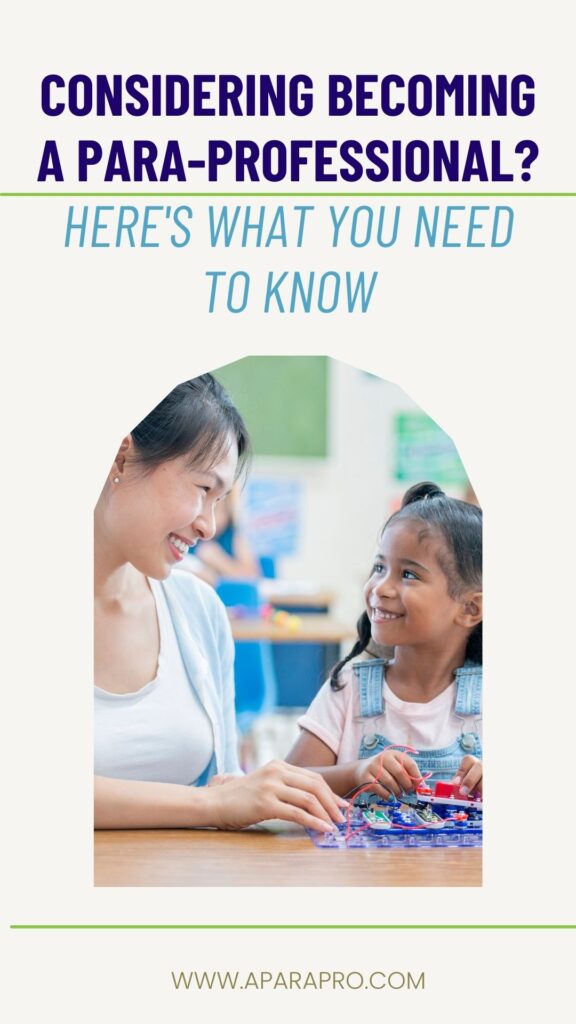
These are just a few examples of the types of paraprofessionals that exist in the workforce. Each one plays an important role in their respective field, providing specialized services that are essential to the success of their employers. If you are interested in becoming a paraprofessional, there are many opportunities available. With the right education and training, you can become a valuable asset to any organization.
Education Paraprofessionals
If you have an interest in working in education but don't want to commit to becoming a teacher, you may want to consider becoming a paraprofessional. Education Paraprofessionals or paraeducators work alongside teachers in classrooms and provide support to students, teachers, and families.
Becoming a paraeducator is a great way to gain experience in the education field and to see if teaching is the right career path for you. It's also a great way to give back to your community and make a difference in the lives of children.
I’m an education para and most of A Para Pro content will be targeted towards paraeducators.
If you're considering becoming a paraprofessional, there are 3 things you should know.
- paraprofessionals come from all walks of life and have a wide range of experiences. There is no one-size-fits-all definition of what it takes to be a paraprofessional.
- paraprofessionals play a vital role in the lives of those they work with, but they are not licensed professionals. Paraprofessionals are not required to have a college degree, but they must have a high school diploma or GED.
- paraprofessionals typically earn a lower salary than licensed professionals, but the job is still very rewarding.
How do you become a paraprofessional?
If you're someone with an interest in becoming a paraprofessional, the first step is to research the requirements in your state and decide if the job is right for you. Once you've done that, you can complete the necessary education and training.
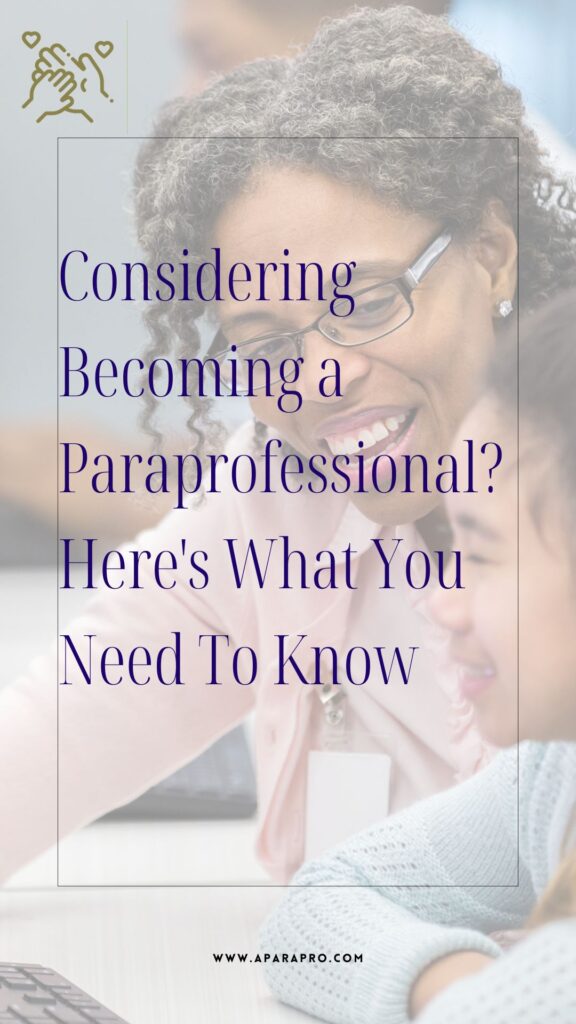
Paraprofessionals typically have a high school diploma or GED and possibly a college degree or some college experience submitted to their state's education licensure database. In addition to being trained in their specific field and passing a drug test and background check.
What kind of experience do you need?
Employers typically prefer candidates for paraeducator positions who have experience working with children or individuals with disabilities, and who possess a range of relevant skills and qualifications. Specific experience employers may look for can include:
- Experience working in schools or with children in other settings.
- Experience working with individuals with disabilities, such as autism or developmental delays.
- Experience providing support to students or teachers in an educational setting.
- Experience implementing behavior plans or other interventions.
- Experience working with assistive technology or other specialized equipment.
In addition to these experiences, employers may also prefer candidates who have completed relevant education or training, such as a degree or certificate program in education, special education, or a related field. The specific qualifications and experiences employers look for may vary depending on the employer, the specific role, and the needs of the students being served.
What kind of salary can I expect to make?
In terms of salary, paraprofessionals generally make between $20,000 and $35,000 a year. Of course, your exact salary will depend on factors like your experience, education, and the district you work in.
Academics and Certificates Required When Considering Becoming a Paraprofessional
To become a paraprofessional, individuals must have a high school diploma or equivalent. Some states require paraprofessionals to have completed some college coursework, while others require paraprofessionals to have an associate’s degree. A few states have no specific requirements for paraprofessionals.
Most paraprofessionals are required to take and pass a test to become certified. The test that is required varies by state, but it is typically the ParaPro test. This test covers basic skills and knowledge that are necessary to work effectively with students who have disabilities.
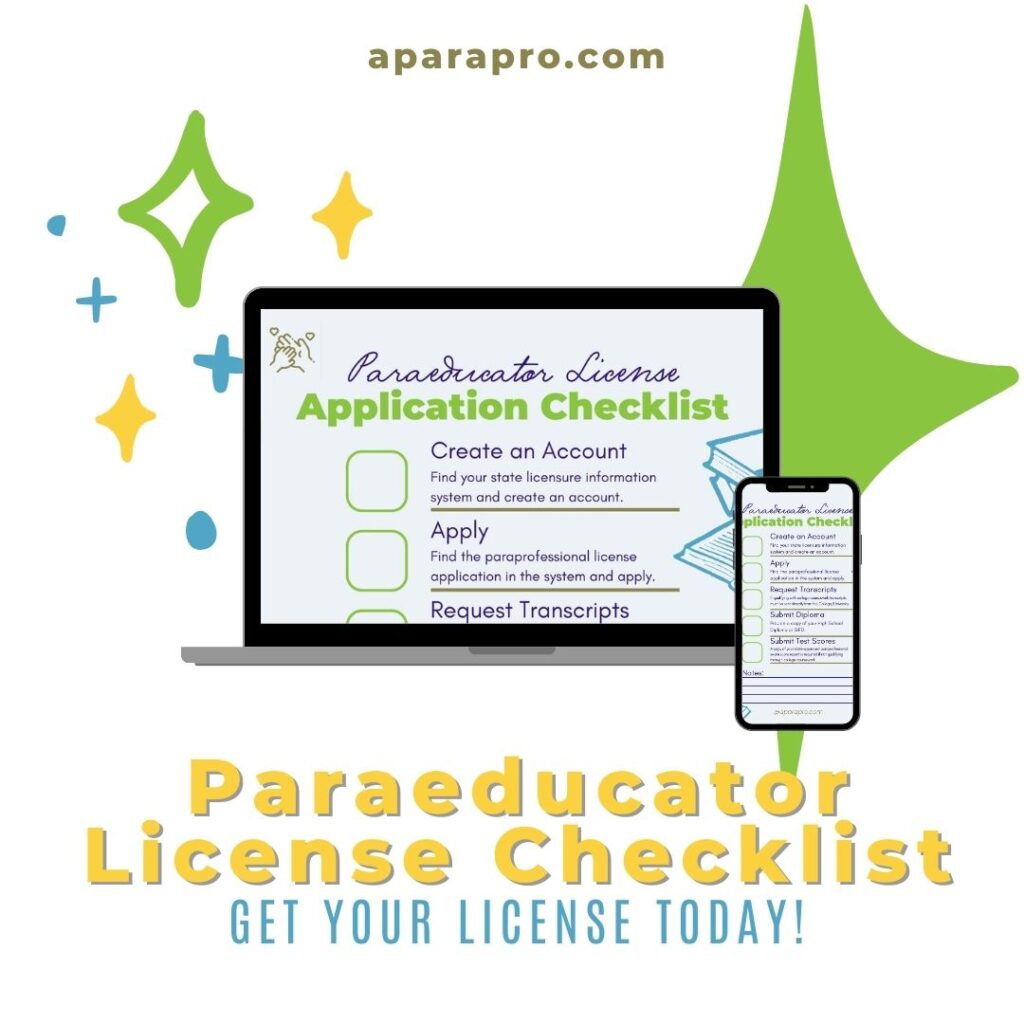
You will also need to obtain a certification to work as a paraprofessional. The type of certification you will need will vary by state, but it is typically the Paraprofessional Educator License (PEL). To obtain this license, you will need to complete a certain amount of continuing education credits (CECs) every year. The number of CECs required varies by state, but it is typically between 10 and 20 credits.
Once an individual has met all of the academic and certificate requirements, they can apply for a paraprofessional position.
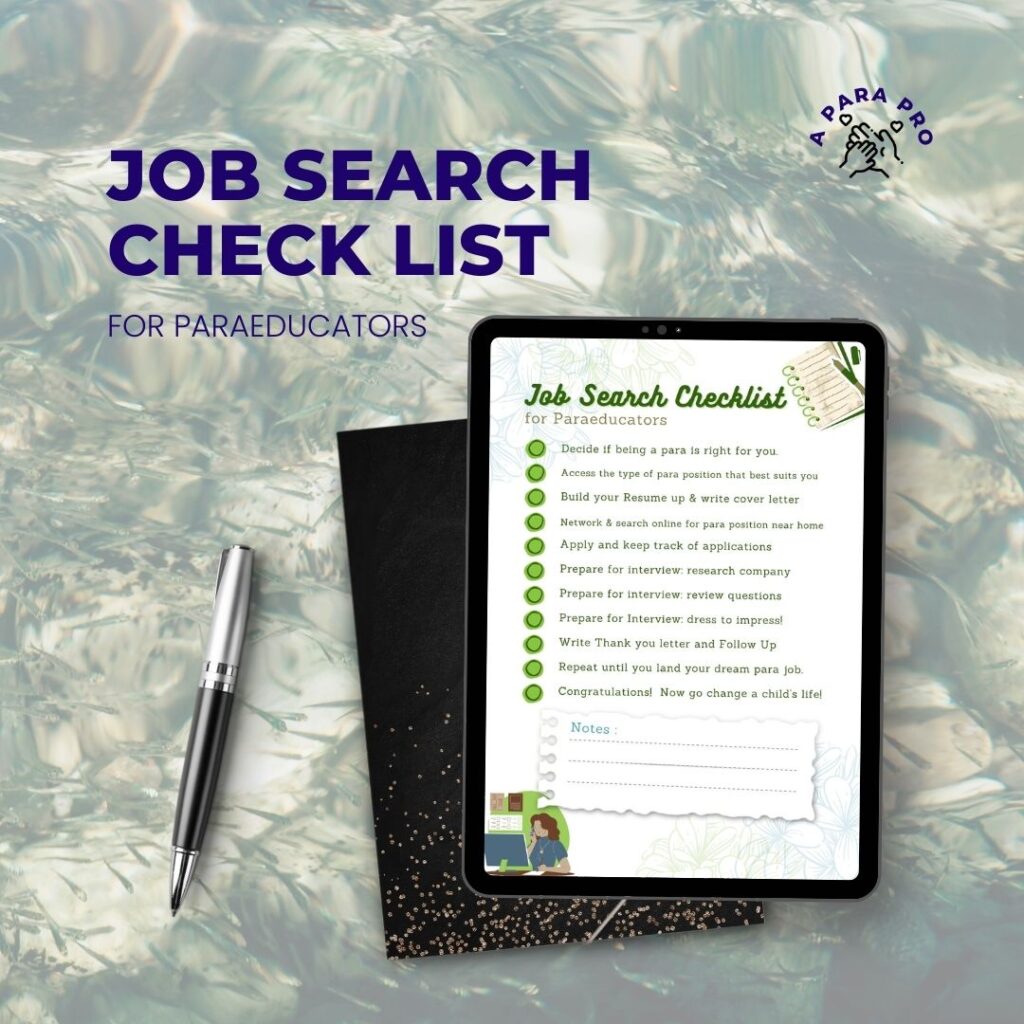
You will need to maintain your certification by completing the required number of CECs every year. In most states, the number of CECs required is between 10 and 20 credits.
7 Questions to Ask Yourself When Considering Becoming a Paraprofessional
Now that you know what paraprofessionals are, what they do, and how to become one. You really have to spend time reflecting if this profession is the right one for you. Here are 7 questions to help you get started.
- Do I have a genuine desire to work with students and support their learning?
- Am I willing to work closely with a supervising teacher and follow their guidance?
- Can I handle the physical demands of the job, such as standing for long periods or assisting with student mobility?
- Am I comfortable working with diverse student populations, including those with disabilities or behavioral challenges?
- Can I communicate effectively and professionally with students, teachers, and parents?
- Am I able to maintain confidentiality and follow ethical guidelines related to student information?
- Do I have the necessary qualifications or willingness to obtain the necessary qualifications, such as a high school diploma or associate's degree, depending on the specific requirements of the position?
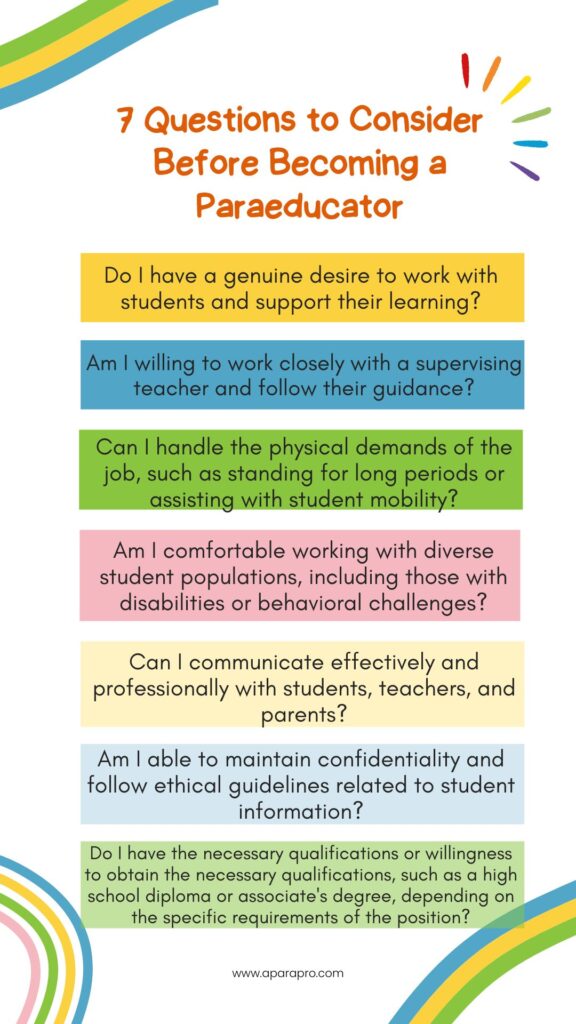
To Conclude
The job of a paraprofessional is to provide support to licensed professionals in a variety of settings. For anyone with an interest in becoming a paraprofessional, to research the requirements in your state and decide if the job is right for you. Once you've done that, you can begin the process of completing the necessary education and training. I’m an education para and most of A Para Pro content will be targeted towards paraeducators. If you would like to stay on top of all things paraeducators please join the A Para Pro Newsletter.

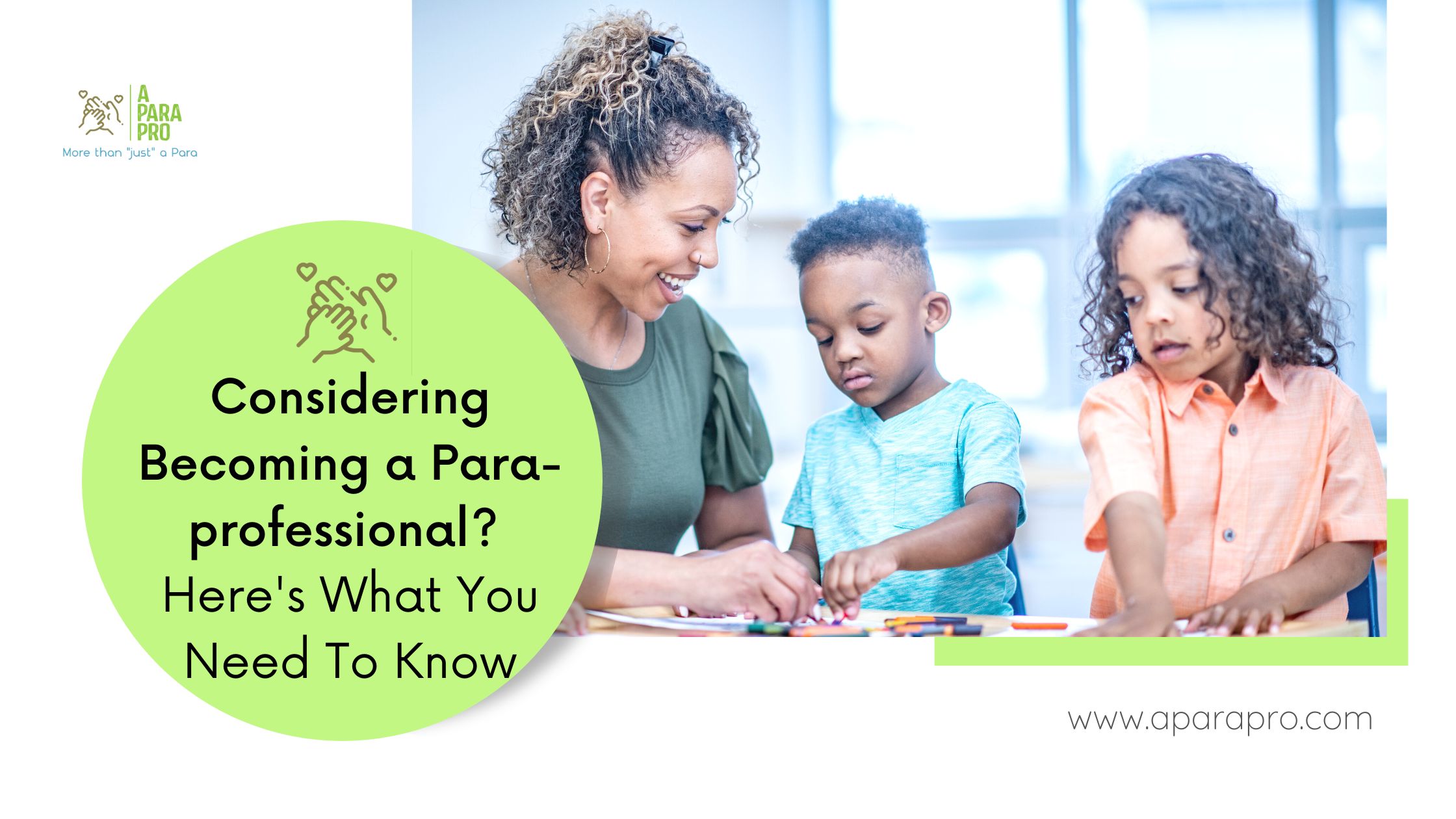

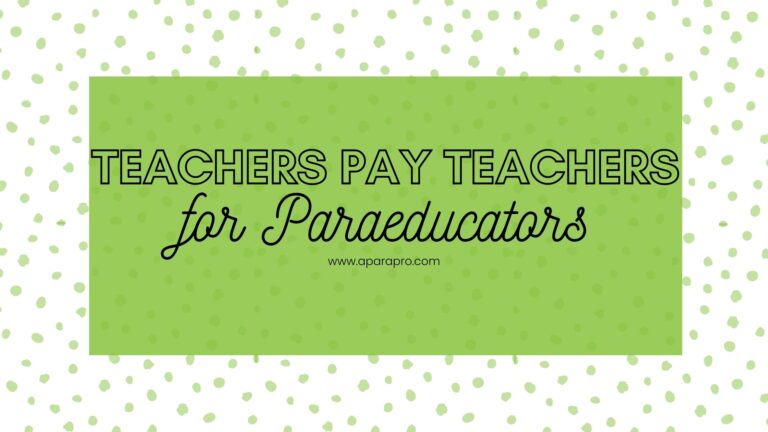

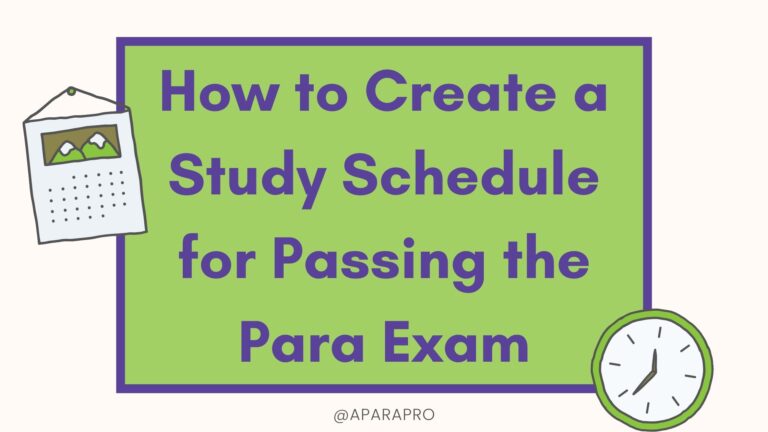
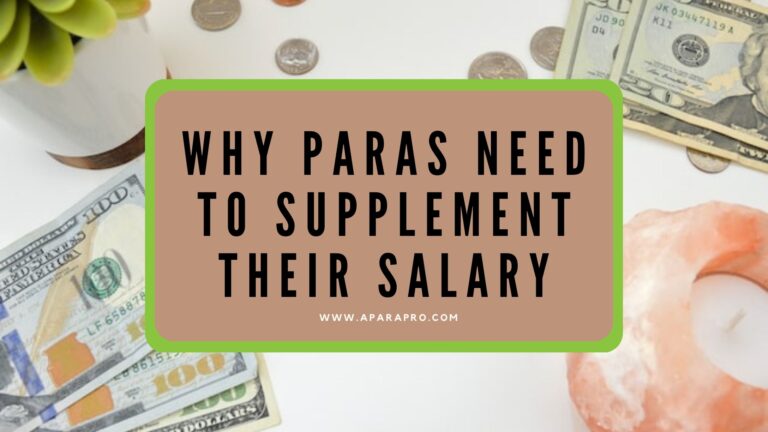
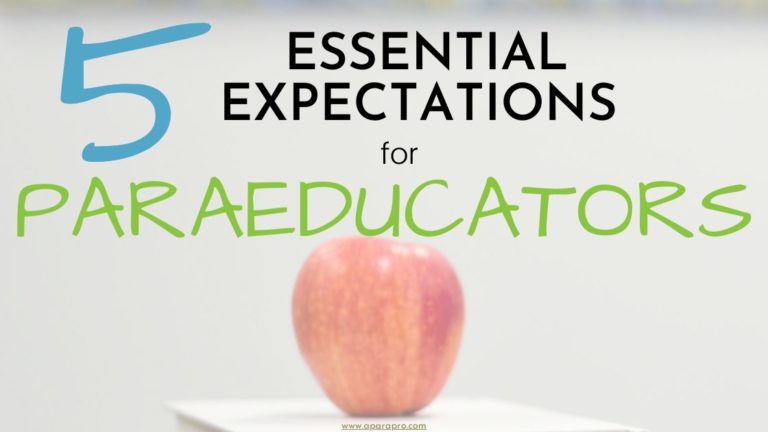
I need to update my license